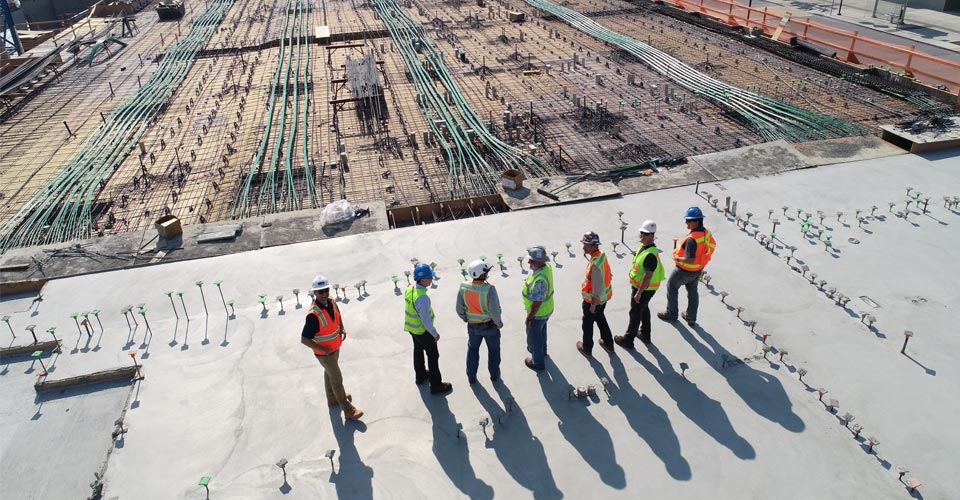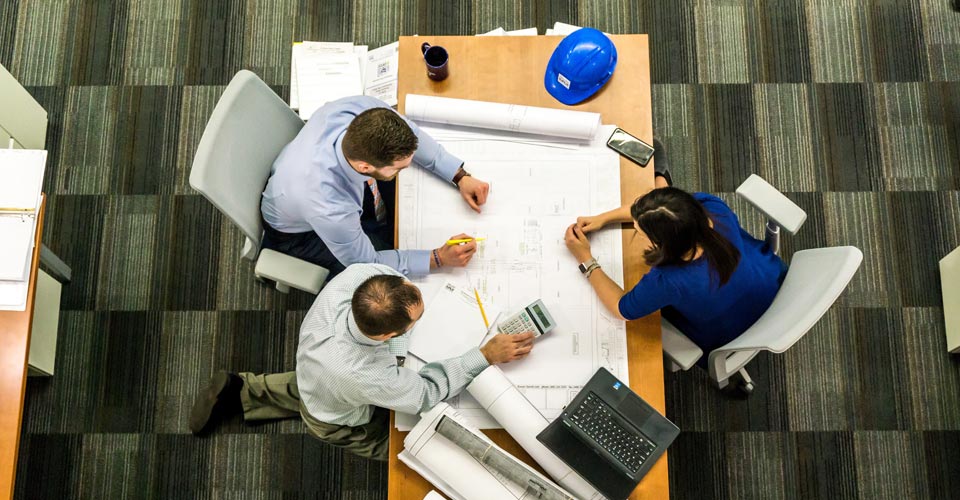Building
Technical control
The inspection takes as criteria the requirements defined in the contract and in the documentation attached to it as well as the applicable mandatory requirements and in the absence of completely outlined technical references, the rule of the art.
The inspection of the execution of the works therefore constitutes the guarantee of the overall quality of the work itself, also in terms of durability, maintainability,
useful life for the purposes also of its insurability with a ten-year posthumous indemnity policy, to cover damages and/or serious defects.
The technical inspection is mainly required by insurance companies as an essential prerequisite for the issuance of the ten-year policy required for the purchase and sale of new residential buildings and/or for the guarantee of the correct execution of public works pursuant to the Decree of the MISE of 20 July 2022, no. 154 "Regulation containing the content and characteristics of the insurance policy and its standard model, pursuant to article 4 of Legislative Decree no. 122 of 20 June 2005’ (G.U. general series no. 247 of 21.10.22).
The technical control service, to guarantee impartiality, independence, competence and reliability, is carried out by Apave Certification Italia under accreditation by Accredia, a signatory body of the international mutual recognition agreements MLA (Multi Lateral Agreement).
 Download the Questionnaire for Drawing up the Technical Control Offer (italian version)
Download the Questionnaire for Drawing up the Technical Control Offer (italian version)
 Download the Rules for Technical Control Activities (italian version)
Download the Rules for Technical Control Activities (italian version)


Types of controls
The types of checks required are shown below.
In the case of civil works:
- Preliminary verification of the project (mandatory phase)
- Structure control
- Casing check
- Waterproofing control
- Checking internal floors and coverings
- Checking plasters and external coverings
- Control of external windows
- Plant control
In the case of infrastructure works:
- Preliminary verification of the project (mandatory phase)
- Structural solidity of tunnels (natural and/or artificial), bridges, viaducts, overpasses, road, railway, tram, trolleybus and underground infrastructures
- Structural solidity of ports
- Structural solidity of dams
- Solidity of underground services
Objectives
The objective of the control is to verify that what is planned is actually implemented, in relation to an established risk margin, with reference to the regulations and laws in force and the possible consequences that, in the event of errors, may occur. Therefore, the technical control service is aimed at guaranteeing and ensuring that:
- The materials supplied (identified, qualified, accepted) are suitable for the intended use and comply with both sector regulations and project requirements
- Each product, component or system is handled, used and stored correctly
- Correct planning and optimal organization of the construction phases of the work are implemented
- Technical standards and rules of the art are applied in all construction, installation, assembly, assembly and installation operations of materials, components and systems, with all their documentary traceability.
In order to achieve this objective, Apave Certification Italia carries out a series of site inspections in which inspections are carried out on the various technological systems (supporting structure, infills, coverings, etc.). The minimum number of inspections is defined by Technical Regulation no. 07 issued by Accredia and depends on the amount of works subject to control, the technological systems subject to control and the minimum frequency of inspections for each of them.
Below is an indicative range of necessary inspections divided by amount range, the minimum and maximum of which depend on the types of checks (lots) requested by the insurance companies.
Advantages
The experience in the field and the results currently available to the technicians highlight that the most critical elements in a generic building are the structural works, the waterproofing inside and above the ground, the casing and the plasters and coverings.
Control activity is mainly concentrated on these elements, although it is equally possible, if requested by insurance companies, to inspect the construction of systems, windows and doors and all those works defined by the Civil Code as "intended to last over time".
During the inspection activity on the execution of the works, the inspectors of the Apave Certification Italia team carry out inspections on the construction sites, following the programming established in the inspection plan shared with the client.
If a check reveals "non-compliance" the contractor is required to remedy it. He is also required to promptly notify the Apave Certification Italia team when he believes he has successfully resolved the problem and in any case before the "non-conformity" becomes unsolvable, with the consequent increase in significant additional costs for demolition and renovation works.
Project
Verification
The project verification can be considered a real quality verification of the design process and consists in carrying out, in an integrated form, a series of project control activities and its compliance with the mandatory sector regulations, including urban planning and environmental legislation. , as well as the rules of good design technique. These checks, as a rule, proceed in parallel with the actual design process and are delimited by a specific framework of needs of the client which defines the criteria, contents and requirements pursuant to art. 41 paragraph 5 of the Code.
The design verification, review and feedback phases are developed in agreement with the RUP/client and with the technicians in charge of the design.
The purpose of the verification is aimed at ascertaining the conformity of the chosen design solution with the specific functional, performance, regulatory and
technical provisions, for each phase (technical, economic and executive feasibility) in relation to the design level for the subsequent validation, carried out pursuant to of the art. 42 of Legislative Decree 36/2023.
The service can refer to the entire design process, or to one or more levels of this process, depending on the specific needs of the administrations, customers and end users. The project verification service, to guarantee impartiality, independence, competence and reliability, is carried out by Apave Certification in Italy under accreditation by Accredia, as a signatory body of the international mutual recognition agreements MLA (Multi Lateral Agreement).
 Download the Questionaire for Drafting Offer Verification (italian version)
Download the Questionaire for Drafting Offer Verification (italian version)
 Download the Regulations for Project verification Activities
Download the Regulations for Project verification Activities


Objectives
The project verification has the aim of providing the RUP/Client with a series of cognitive elements regarding the project in question, useful for validating and therefore approving the project itself for the continuation of the planning and execution process of public works.
These objectives can be summarized as follows:
- Ensure the technical, administrative and economic feasibility of the public work, avoiding prolonging the design times with requests for modifications and additions following the drafting and completion of the project
- Ensure consistency between :
- the design choices and the related technical solutions in the transition between the subsequent project levels
- the technical and technological solutions and the choices adopted, also in compliance with the indications of the safety and maintenance plans
- compliance with the applicable mandatory and consensual legislation - Eliminate or reduce
- design deficiencies and errors that can cause an increase in budgeted costs
- the risk of reservations on the part of the contractor
- delays due to planning errors
Advantages
The excellence of the services provided by Apave Certification in Italy is guaranteed by the high level of skills and professionalism of the staff employed, the technical experts and the specialist consultants who collaborate continuously with the company. This staff constitutes a dynamic and at the same time consolidated network, capable of covering all the specializations required in the engineering and architecture sectors and in the management of public procurement.
The preparation and development of the tools and operational practices applicable to the verification service are a consequence of the results of in-depth analyzes of the object of the service itself, the conditions of the context, the objectives and expectations of the administrations / customers / end users.
The lack of or incorrect definition of the characteristics, including technological ones, of the work in the design phase entails a direct and negative consequence: the impossibility of exhaustively defining the performance characteristics that make up the work and therefore of calculating them correctly.
Suspensions of work, variations during construction and contractor reservations are frequently the cause of failure to resolve problems encountered during the design phase.
The project verification can be carried out in progress (during the carrying out of the project phases) or in ending (after the complete drafting of the project), and can be extended to the entire control chain.
The aforementioned guarantee is also applicable to all interventions to be carried out under the construction and project financing regime.
Why choose
Apave?

ITS EXPERTISE IN RISK MANAGEMENT

THE VARIETY OF ITS AREAS OF ACTIVITY

